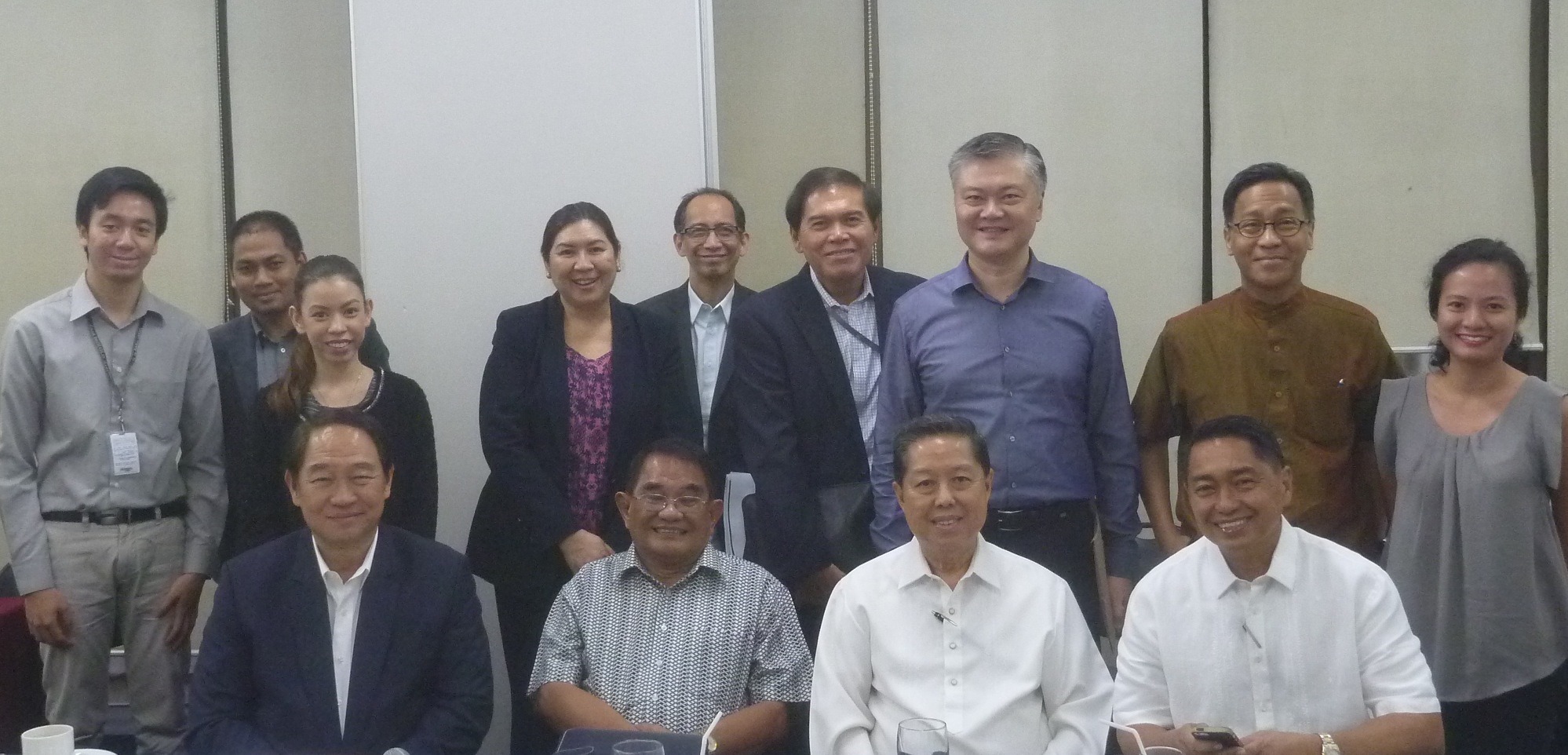
The Asia Pacific Pathways to Progress Foundation, Inc. (APPFI) in partnership with the Asian Institute of Management (AIM) ASEAN 2015 Project, organized the second of a series of High-Level Consultation Workshops under the theme “Economic and Development Outlook for the Asian Century: The China Factor & Implications for the Philippines and ASEAN”. This was held on April 17, 2015 at the AIM.
The participants were a highly select group of Filipino business leaders, including Mr. Washington Sycip (Founder of the SGV Group), Mr. Francisco Filamor Del Rosario, Jr. (President, Management Association of the Philippines), Mr. Vicente Lao (President, Mindanao Business Council), Mr. Alfonso Uygongco (Honorary President, Federation of Filipino-Chinese Chambers of Commerce and Industry of FFCCCII) and Mr. Cirilo P. Noel (Trustee, Makati Business Club). Also participating were Dr. Guillermo Balce (Consultant for Energy and Mining, San Miguel Corp.) and Mr. Jeffrey Ng (President, Astoria Hotels and Resorts). On the government side, Retired Rear Admiral Vicente Agdamag (Deputy Director-General, National Security Council) joined the consultations. Mr. Juan Miguel M. Luz (Dean of AIM’s Stephen Zuellig Graduate School of Development Management) and Dr. Aileen Baviera (President of APPFI) facilitated the discussions.
The conversations focused on what the private sector saw as major obstacles to the country’s inclusive growth and development, and the present challenges that the economy faces in relation to external factors such as China’s rise and growing assertiveness, and ASEAN integration. The participants lamented that the Philippines has been left behind as its neighboring economies leap-frogged in the past decades, successfully contributing to the general well-being of their citizens. Concerns relating to governance were raised – including poor coordination and execution of plans, the persistence of patronage, overcentralization, shortsighted and populist tendencies in policy formulation, and infrastructure as well as bureaucratic and legal bottlenecks. Participants emphasized the need to take more strategic, independent, and practical perspectives in understanding the Philippines’ external environment -- not only the economic trends but also the geopolitical relations among big powers.
Several key sectors were identified as sources of economic opportunities, including agribusiness, construction, tourism and human resources. The country’s geographic location as a maritime center was described as much coveted globally yet underappreciated locally. Relations with China, the world’s biggest market, must be informed by a broad appreciation of where China and the Philippines can potentially be situated in global value and supply chains and in relation to our maritime milieu.
However, the economic and development benefits to be expected from relations with China will inevitably remain constrained for as long as political uncertainties brought about by territorial disputes remain. Thus the government, private sector and the Filipino people as a whole must cooperate to build the country's strength, strategize well, but also explore many channels of dialogue and cooperation to try to turn the crisis in relations into opportunities.
